#european posting
Explore tagged Tumblr posts
Text
i do sometimes forget most white americans cant necessarily tell what version of white someone is. and to be very clear this is not me at all criticising - homogenous whiteness is part of american culture and that has an impact on how european features are percieved, it makes total sense they have a different perspective. But like personally i can look at most white people and take a pretty good guess what region of europe their familys from, and so can most other europeans. I remember studying in america and finding out the girl i was sat with was irish american and saying 'oh i could tell. you look irish' and her being shocked, saying she was surprised i could tell. like girl you are the most sterotypically irish looking person i've ever seen. There are always exceptions obviously, but as a general rule you can at least take a good guess.
I think maybe this why some movies seem so badly cast to me sometimes. They'll be casting for a movie about ancient greece or something and it'd be fine if one or two actors looked more western or northern european... but all of them? I just cant concentrate. It takes me tf out. I'll be sitting there like "that is an anglo saxon i can tell just by looking at him". I remember being so not okay with logan lerman getting cast as percy jackson when i was a kid, because the book described him as mediterranean. And i felt gaslit because everyone else was calling him the perfect percy, when he looked so british/irish to me. Like e.g. I can tell Emma D'Arcys heritage is likely scandinavian, just from looking at them. They have a mix of features you can pinpoint on a map somehow. Its just something I know immediately upon looking at them without having to even think about it.
Maybe this is why some americans seem confused by where 'tall, dark, and handsome' comes from, and the concept of dark features in general. "Olive-skinned" as well. Like these terms dont really work very well with a culture that enforces homogenous whiteness. My cultural experience with the term "olive skinned" has always been that its used as a way of referencing the green undertone (i.e. has nothing to do with the depth of colour) usually seen in the countries around the Mediterranean. It suggests that that person's skin tans easily, but it doesnt necessarily mean it IS tan. It can go very pale without sunlight, but even when its pale its yellow/green tinted. But seriously, where does that term fit in when it comes to homogenous whiteness? It just doesnt really, it wasnt made for that.
All i can think is Europeans dont really have a concept of overarching whiteness amongst ourselves the way white americans do (please dont think this is me saying we dont benefit from whiteness, we do). Im not saying this is better or worse than the american concept either btw, Im really not making any kind of moral or political statement here. I just think its kinda fascinating how much culture affects our ability to categorise certain traits. Our perception of stuff like this depends sooo heavily on culture/how we're exposed to it, and I think maybe this is something we need to keep in mind when we're having cross-continental conversations, instead of assuming our way is the only way to percieve something and the other person is stupid for seeing something different than what we see.
24 notes
·
View notes
Text

https://nationalpost.com/news/canada/theyre-not-human-how-19th-century-inuit-coped-with-a-real-life-invasion-of-the-walking-dead
Indigenous groups across the Americas had all encountered Europeans differently. But where other coastal groups such as the Haida or the Mi’kmaq had met white men who were well-fed and well-dressed, the Inuit frequently encountered their future colonizers as small parties on the edge of death.
“I’m sure it terrified people,” said Eber, 91, speaking to the National Post by phone from her Toronto home.
And it’s why, as many as six generations after the events of the Franklin Expedition, Eber was meeting Inuit still raised on stories of the two giant ships that came to the Arctic and discharged columns of death onto the ice.
Inuit nomads had come across streams of men that “didn’t seem to be right.” Maddened by scurvy, botulism or desperation, they were raving in a language the Inuit couldn’t understand. In one case, hunters came across two Franklin Expedition survivors who had been sleeping for days in the hollowed-out corpses of seals.
“They were unrecognizable they were so dirty,” Lena Kingmiatook, a resident of Taloyoak, told Eber.
Mark Tootiak, a stepson of Nicholas Qayutinuaq, related a story to Eber of a group of Inuit who had an early encounter with a small and “hairy” group of Franklin Expedition men evacuating south.
“Later … these Inuit heard that people had seen more white people, a lot more white people, dying,” he said. “They were seen carrying human meat.”
Even Eber’s translator, the late Tommy Anguttitauruq, recounted a goose hunting trip in which he had stumbled upon a Franklin Expedition skeleton still carrying a clay pipe.
By 1850, coves and beaches around King William Island were littered with the disturbing remnants of their advance: Scraps of clothing and camps still littered with their dead occupants. Decades later, researchers would confirm the Inuit accounts of cannibalism when they found bleached human bones with their flesh hacked clean.
“I’ve never in all my life seen any kind of spirit — I’ve heard the sounds they make, but I’ve never seen them with my own eyes,” said the old man who had gone out to investigate the Franklin survivors who had straggled into his camp that day on King William Island.
The figures’ skin was cold but it was not “cold as a fish,” concluded the man. Therefore, he reasoned, they were probably alive.
“They were beings but not Inuit,” he said, according to the account by shaman Nicholas Qayutinuaq.
The figures were too weak to be dangerous, so Inuit women tried to comfort the strangers by inviting them into their igloo.
But close contact only increased their alienness: The men were timid, untalkative and — despite their obvious starvation — they refused to eat.
The men spit out pieces of cooked seal offered to them. They rejected offers of soup. They grabbed jealous hold of their belongings when the Inuit offered to trade.
When the Inuit men returned to the camp from their hunt, they constructed an igloo for the strangers, built them a fire and even outfitted the shelter with three whole seals.
Then, after the white men had gone to sleep, the Inuit quickly packed up their belongings and fled by moonlight.
Whether the pale-skinned visitors were qallunaat or “Indians” — the group determined that staying too long around these “strange people” with iron knives could get them all killed.
“That night they got all their belongings together and took off towards the southwest,” Qayutinuaq told Dorothy Eber.
But the true horror of the encounter wouldn’t be revealed until several months later.
The Inuit had left in such a hurry that they had abandoned several belongings. When a small party went back to the camp to retrieve them, they found an igloo filled with corpses.
The seals were untouched. Instead, the men had eaten each other.
#being so English you die of racism#because youd rather eat each other than a seal#or try to signal to the friendly locals that you need help#many such cases#UNIRONICALLY#the terror#the franklin expedition#dorothy eber#then they infected all these people with European disease of course#the national post is a chud rag so this is an unexpectedly good article for them
59K notes
·
View notes
Text
"this is a universal queer experience"
>ask if it's universal or white
>they don't understand
>I pull out a diagram explaining what is universal and what is white
>they laugh and say "It's a good experience sir"
>I'm a native american trans woman
>Experience is white
#spinning my web#based off the one post going around#anyways.#other poc peer review plz#also europeans warning you in advance dont be annoying. youre just as bad about this as your colonies.
19K notes
·
View notes
Text
*draco malfoy voice* skinny jeans, jewel tones... you must be a european
0 notes
Text

so....
3K notes
·
View notes
Text




#posting early but it’s fine. Imagine it’s Saturday#European starling#starling#bird#birblr#glitter#gif
11K notes
·
View notes
Text












STAR TREK: VOYAGER // S2E15: Threshold
#trekedit#startrekedit#star trek voyager#star trek#voy#tom paris#kathryn janeway#b'elanna torres#emh#kes#chakotay#tuvok#harry kim#threshold#threshold day#scifiedit#myedits#posting this earlier than usual for my fellow europeans
420 notes
·
View notes
Text
Triptychs by Polish painter Kazimierz Sichulski:




1. The Hutsul Madonna, 1909
2. Adoration of the Shepherds, 1938
3. Adoration of the Magi, 1913
4. Spring, 1909
#art#my post#poland#polish art#polish painter#eastern europe#religious art#religion#eastern european#theotokos#jesus christ#christian art#christianity#hutsul#impressionism
3K notes
·
View notes
Note
...is this reaching you?
A little animal, on the floor of my chamber. I think I know what you are looking for.
You're stuck in a cycle, a repeating pattern. You want a way out.
Know that this does not make you special - every living thing shares that same frustration. From the microbes in the processing strata to me, who am, if you excuse me, godlike in comparison.
The good news first. In a way, I am what you are searching for. Me and my kind have as our purpose to solve that very oscillating claustrophobia in the chests of you and countless others. A strange charity - you the unknowing recipient, I the reluctant gift. The noble benefactors? Gone.
The bad news is that no definitive solution has been found. And every moment the equipment erodes to a new state of decay. I can't help you collectively, or individually. I can't even help myself.
For you though, there is another way. The old path. Go to the west past the Farm Arrays, and then down into the earth where the land fissures, as deep as you can reach, where the ancients built their temples and danced their silly rituals. The mark I gave you will let you through.
Not that it solves anyone's problem but yours.
String identified: … t acg ? A tt aa, t ca. t at a g . ' tc a cc, a atg att. at a a t. tat t t a ca - g tg a tat a tat. t c t cg tata t , a, c , g ca. T g t. a a, a at a acg . a a a t tat catg cata t ct a ct t. A tag cat - t g ct, t ctat gt. T act? G. T a tat t t a . A t t t t a tat ca. ca't cct, a. ca't . tg, t at a. T at. G t t t at t a Aa, a t t t at t a , a a ca ac, t act t t t a ac t ta. T a ga t tg. t tat t a' t .
Closest match: Cetonia aurata genome assembly, chromosome: 8 Common name: European Rose Chafer
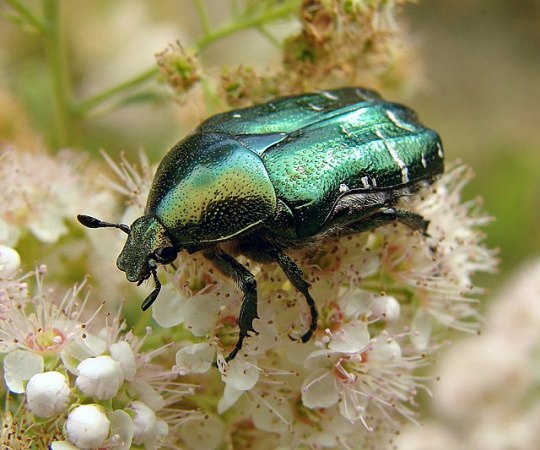
(image source)
#tumblr genetics#genetics#asks#requests#sent to me#anon#rain world#five pebbles#5p#bugs#insects#beetles#european rose chafer#casting a spell called ''mentioning five pebbles'' which summons 10000 rw fans to your post
1K notes
·
View notes
Text




(OLD ART !) My collection of Ukraine folk dress I draw years ago
One of the country that sparked my love for folk dress of European. Huge love !
#feeling better so gotta post something#my art#traditional clothing#folkdress#folk clothing#folklore#european#european culture#art#Illustration#digital painting#ukraine#ukraine folk dress#vyshyvanka#digital art#artwork#вишива́нка#Україна#eastern europe#eastern european#slavic#slavic folklore#artists on tumblr
1K notes
·
View notes
Text


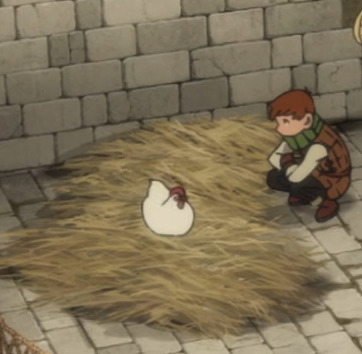


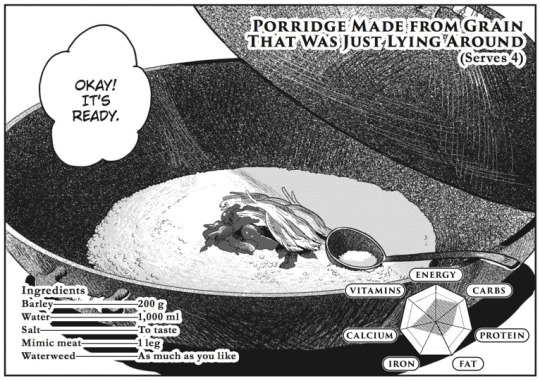
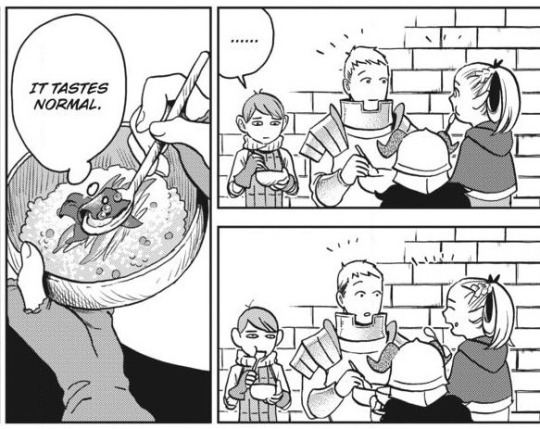
slavic chilchuck moodboard
#also he loves complaining. but i cant find any lines of dialogue that say it outright :pensive:#feel free to add more <3#L.txt#dungeon meshi#chilposting#slavchuck#chilchuck#chilchuck tims#EDIT: this doesn't fit w the silliness of the post but i just realized that the poor treatment of half-foots can be viewed#from the lens of how in west european contries eastern europeans are imported to do undesirable (esp hard) labor#and how eastern european women are trafficked esp for sex work#ummmm yeah . much to think about
1K notes
·
View notes
Text
Antiusurpation and the road to disenshittification
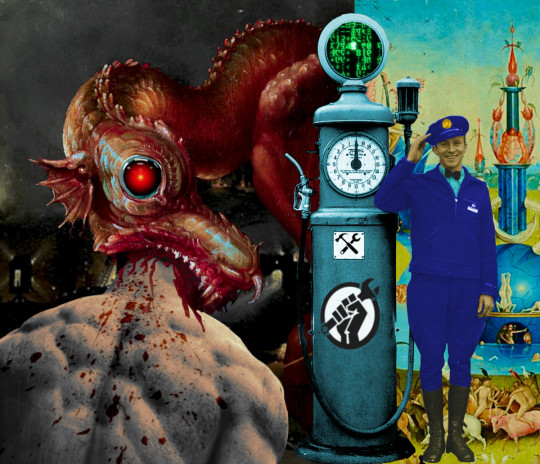
THIS WEEKEND (November 8-10), I'll be in TUCSON, AZ: I'm the GUEST OF HONOR at the TUSCON SCIENCE FICTION CONVENTION.

Nineties kids had a good reason to be excited about the internet's promise of disintermediation: the gatekeepers who controlled our access to culture, politics, and opportunity were crooked as hell, and besides, they sucked.
For a second there, we really did get a lot of disintermediation, which created a big, weird, diverse pluralistic space for all kinds of voices, ideas, identities, hobbies, businesses and movements. Lots of these were either deeply objectionable or really stupid, or both, but there was also so much cool stuff on the old, good internet.
Then, after about ten seconds of sheer joy, we got all-new gatekeepers, who were at least as bad, and even more powerful, than the old ones. The net became Tom Eastman's "Five giant websites, each filled with screenshots of the other four." Culture, politics, finance, news, and especially power have been gathered into the hands of unaccountable, greedy, and often cruel intermediaries.
Oh, also, we had an election.
This isn't an election post. I have many thoughts about the election, but they're still these big, unformed blobs of anger, fear and sorrow. Experience teaches me that the only way to get past this is to just let all that bad stuff sit for a while and offgas its most noxious compounds, so that I can handle it safely and figure out what to do with it.
While I wait that out, I'm just getting the job done. Chop wood, carry water. I've got a book to write, Enshittification, for Farar, Straus, Giroux's MCD Books, and it's very nearly done:
https://twitter.com/search?q=from%3Adoctorow+%23dailywords&src=typed_query&f=live
Compartmentalizing my anxieties and plowing that energy into productive work isn't necessarily the healthiest coping strategy, but it's not the worst, either. It's how I wrote nine books during the covid lockdowns.
And sometimes, when you're not staring directly at something, you get past the tunnel vision that makes it impossible to see its edges, fracture lines, and weak points.
So I'm working on the book. It's a book about platforms, because enshittification is a phenomenon that is most visible and toxic on platforms. Platforms are intermediaries, who connect buyers and sellers, creators and audiences, workers and employers, politicians and voters, activists and crowds, as well as families, communities, and would-be romantic partners.
There's a reason we keep reinventing these intermediaries: they're useful. Like, it's technically possible for a writer to also be their own editor, printer, distributor, promoter and sales-force:
https://pluralistic.net/2024/02/19/crad-kilodney-was-an-outlier/#intermediation
But without middlemen, those are the only writers we'll get. The set of all writers who have something to say that I want to read is much larger than the set of all writers who are capable of running their own publishing operation.
The problem isn't middlemen: the problem is powerful middlemen. When an intermediary gets powerful enough to usurp the relationship between the parties on either side of the transaction, everything turns to shit:
https://pluralistic.net/2022/06/12/direct-the-problem-of-middlemen/
A dating service that faces pressure from competition, regulation, interoperability and a committed workforce will try as hard as it can to help you find Your Person. A dating service that buys up all its competitors, cows its workforce, captures its regulators and harnesses IP law to block interoperators will redesign its service so that you keep paying forever, and never find love:
https://www.npr.org/sections/money/2024/02/13/1228749143/the-dating-app-paradox-why-dating-apps-may-be-worse-than-ever
Multiply this a millionfold, in every sector of our complex, high-tech world where we necessarily rely on skilled intermediaries to handle technical aspects of our lives that we can't – or shouldn't – manage ourselves. That world is beholden to predators who screw us and screw us and screw us, jacking up our rents:
https://www.thebignewsletter.com/p/yes-there-are-antitrust-voters-in
Cranking up the price of food:
https://pluralistic.net/2023/10/04/dont-let-your-meat-loaf/#meaty-beaty-big-and-bouncy
And everything else:
https://pluralistic.net/2023/11/06/attention-rents/#consumer-welfare-queens
(Maybe this is a post about the election after all?)
The difference between a helpmeet and a parasite is power. If we want to enjoy the benefits of intermediaries without the risks, we need policies that keep middlemen weak. That's the opposite of the system we have now.
Take interoperability and IP law. Interoperability (basically, plugging new things into existing things) is a really powerful check against powerful middlemen. If you rely on an ad-exchange to fund your newsgathering and they start ripping you off, then an interoperable system that lets you use a different exchange will not only end the rip off – it'll make it less likely to happen in the first place because the ad-tech platform will be afraid of losing your business:
https://www.eff.org/deeplinks/2023/05/save-news-we-must-shatter-ad-tech
Interoperability means that when a printer company gouges you on ink, you can buy cheap third party ink cartridges and escape their grasp forever:
https://www.eff.org/deeplinks/2020/11/ink-stained-wretches-battle-soul-digital-freedom-taking-place-inside-your-printer
Interoperability means that when Amazon rips off audiobook authors to the tune of $100m, those authors can pull their books from Amazon and sell them elsewhere and know that their listeners can move their libraries over to a different app:
https://pluralistic.net/2022/09/07/audible-exclusive/#audiblegate
But interoperability has been in retreat for 40 years, as IP law has expanded to criminalize otherwise normal activities, so that middlemen can use IP rights to protect themselves from their end-users and business customers:
https://locusmag.com/2020/09/cory-doctorow-ip/
That's what I mean when I say that "IP" is "any law that lets a business reach beyond its own walls and control the actions of its customers, competitors and critics."
For example, there's a pernicious law 1998 US law that I write about all the time, Section 1201 of the Digital Millennium Copyright Act, the "anticircumvention law." This is a law that felonizes tampering with copyright locks, even if you are the creator of the undelying work.
So Amazon – the owner of the monopoly audiobook platform Audible – puts a mandatory copyright lock around every audiobook they sell. I, as an author who writes, finances and narrates the audiobook, can't provide you, my customer, with a tool to remove that lock. If I do so, I face criminal sanctions: a five year prison sentence and a $500,000 fine for a first offense:
https://pluralistic.net/2022/07/25/can-you-hear-me-now/#acx-ripoff
In other words: if I let you take my own copyrighted work out of Amazon's app, I commit a felony, with penalties that are far stiffer than the penalties you would face if you were to simply pirate that audiobook. The penalties for you shoplifting the audiobook on CD at a truck-stop are lower than the penalties the author and publisher of the book would face if they simply gave you a tool to de-Amazon the file. Indeed, even if you hijacked the truck that delivered the CDs, you'd probably be looking at a shorter sentence.
This is a law that is purpose-built to encourage intermediaries to usurp the relationship between buyers and sellers, creators and audiences. It's a charter for parasitism and predation.
But as bad as that is, there's another aspect of DMCA 1201 that's even worse: the exemptions process.
You might have read recently about the Copyright Office "freeing the McFlurry" by granting a DMCA 1201 exemption for companies that want to reverse-engineer the error-codes from McDonald's finicky, unreliable frozen custard machines:
https://pluralistic.net/2024/10/28/mcbroken/#my-milkshake-brings-all-the-lawyers-to-the-yard
Under DMCA 1201, the Copyright Office hears petitions for these exemptions every three years. If they judge that anticircumvention law is interfering with some legitimate activity, the statute empowers them to grant an exemption.
When the DMCA passed in 1998 (and when the US Trade Rep pressured other world governments into passing nearly identical laws in the decades that followed), this exemptions process was billed as a "pressure valve" that would prevent abuses of anticircumvention law.
But this was a cynical trick. The way the law is structured, the Copyright Office can only grant "use" exemptions, but not "tools" exemptions. So if you are granted the right to move Audible audiobooks into a third-party app, you are personally required to figure out how to do that. You have to dump the machine code of the Audible app, decompile it, scan it for vulnerabilities, and bootstrap your own jailbreaking program to take Audible wrapper off the file.
No one is allowed to help you with this. You aren't allowed to discuss any of this publicly, or share a tool that you make with anyone else. Doing any of this is a potential felony.
In other words, DMCA 1201 gives intermediaries power over you, but bans you from asking an intermediary to help you escape another abusive middleman.
This is the exact opposite of how intermediary law should work. We should have rules that ban intermediaries from exercising undue power over the parties they serve, and we should have rules empowering intermediaries to erode the advantage of powerful intermediaries.
The fact that the Copyright Office grants you an exemption to anticircumvention law means nothing unless you can delegate that right to an intermediary who can exercise it on your behalf.
A world without publishing intermediaries is one in which the only writers who thrive are the ones capable of being publishers, too, and that's a tiny fraction of all the writers with something to say.
A world without interoperability intermediaries is one in which the only platform users who thrive are also skilled reverse-engineering ninja hackers – and that's an infinitesimal fraction of the platform users who would benefit from interoperabilty.
Let this be your north star in evaluating platform regulation proposals. Platform regulation should weaken intermediaries' powers over their users, and strengthen their power over other middlemen.
Put in this light, it's easy to see why the ill-informed calls to abolish Section 230 of the Communications Decency Act (which makes platform users, not platforms, responsible for most unlawful speech) are so misguided:
https://www.techdirt.com/2020/06/23/hello-youve-been-referred-here-because-youre-wrong-about-section-230-communications-decency-act/
If we require platforms to surveil all user speech and block anything that might violate any law, we give the largest, most powerful platforms a permanent advantage over smaller, better platforms, run by co-ops, hobbyists, nonprofits local governments, and startups. The big platforms have the capital to rig up massive, automated surveillance and censorship systems, and the only alternatives that can spring up have to be just as big and powerful as the Big Tech platforms we're so desperate to escape:
https://pluralistic.net/2024/03/23/evacuate-the-platforms/#let-the-platforms-burn
This is especially grave given the current political current, where fascist politicians are threatening platforms with brutal punishments for failing to censor disfavored political views.
Anyone who tells you that "it's only censorship when the government does it" is badly confused. It's only a First Amendment violation when the government does it, sure – but censorship has always relied on intermediaries. From the Inquisition to the Comics Code, government censors were only able to do their jobs because powerful middlemen, fearing state punishments, blocked anything that might cross the line, censoring far beyond the material actually prohibited by the law:
https://pluralistic.net/2024/02/22/self-censorship/#hugos
We live in a world of powerful, corrupt middlemen. From payments to real-estate, from job-search to romance, there's a legion of parasites masquerading as helpmeets, burying their greedy mouthparts into our tender flesh:
https://www.capitalisnt.com/episodes/visas-hidden-tax-on-americans
But intermediaries aren't the problem. You shouldn't have to stand up your own payment processor, or learn the ins and outs of real-estate law, or start your own single's bar. The problem is power, not intermediation.
As we set out to build a new, good internet (with a lot less help from the US government than seemed likely as recently as last week), let's remember that lesson: the point isn't disintermediation, it's weak intermediation.

If you'd like an essay-formatted version of this post to read or share, here's a link to it on pluralistic.net, my surveillance-free, ad-free, tracker-free blog:
https://pluralistic.net/2024/11/07/usurpers-helpmeets/#disreintermediation

Image: Cryteria (modified) https://commons.wikimedia.org/wiki/File:HAL9000.svg
CC BY 3.0 https://creativecommons.org/licenses/by/3.0/deed.en (Image: Cryteria, CC BY 3.0, modified)
#pluralistic#comcom#competitive compatibility#interoperability#interop#adversarial interoperability#intermediaries#enshittification#posting through it#compartmentalization#farrar straus giroux#intermediary liability#intermediary empowerment#delegation#delegatability#dmca 1201#1201#digital millennium copyright act#norway#article 6#eucd#european union copyright act#eucd article 6#eu#usurpers#crad kilodney#fiduciaries#disintermediation#dark corners#self-censorship
575 notes
·
View notes
Text


Henri de Toulouse-Lautrec (France, 1864-1901)
Follette, 1890
Oil on cardboard, 21 1/2 x 11 1/4 In (54.6 x 28.6 cm) Framed: 30 1/4 x 20 1/2 x 3 in (76.8 x 52.1 x 9.5 cm)
On display at Philadelphia Museum of Art
#animals in art#european art#19th century art#painting#museum visit#French art#modern art#post impressionism#Henri de Toulouse-Lautrec#dog#dogs in art#pet portrait#Philadelphia Museum of Art
344 notes
·
View notes
Text
laios when his party needed more members:
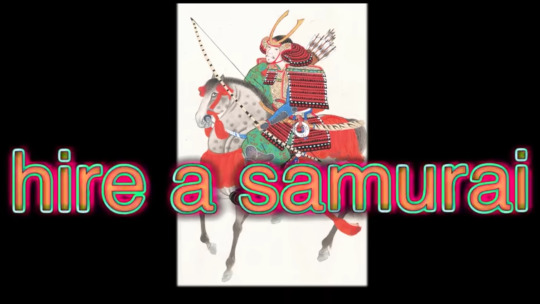
#eliot posts#dunme#delicious in dungeon#dungeon meshi#laios touden#toshiro nakamoto#though i suppose this samurai was less hired and more just dragged along lmao#toshiro (and his team's) existence within this setting absolutely tickles me#bc the setting is so like. Standard Ambiguously Old Timey European Fantasy Setting#and then there just. is a samurai there.#it makes absolute logical sense if you think about it#like yeah of course a world that includes many continents will have more than just Fantasy Europe#but nonetheless seeing a samurai and a knight side by side in the same story is such a genre twist#(i hope no one has made this joke before lol it feels too obvious)
1K notes
·
View notes
Text
An illegal toxic dump site in Croatia, the theft of water from a major aquifer in southern Spain, illegal trading of ozone-depleting refrigerants in France: This is just a sampling of the environmental crimes that European countries are struggling to stop. The lack of accountability for these acts stems in part from the European Union’s legal code, which experts say is riddled with vague definitions and gaps in enforcement. That’s about to change.
Last week, EU lawmakers voted in a new directive that criminalizes cases of environmental damage “comparable to ecocide,” a term broadly defined as the severe, widespread, and long-term destruction of the natural world. Advocates called the move “revolutionary,” both because it sets strict penalties for violators, including up to a decade in jail, and because it marks the first time that an international body has created a legal pathway for the prosecution of ecocide.
“This decision marks the end of impunity for environmental criminals and could usher in a new age of environmental litigation in Europe,” wrote Marie Toussaint, a French lawyer and EU parliamentarian for the Greens/European Free Alliance group, on X...
The new directive uses the term “ecocide” in its preamble, but does not criminalize the act by laying out a legal definition (the most widely accepted definition of ecocide was developed by an international panel of experts in 2021). Instead, it works by providing a list of “qualified offenses,” or crimes that fall within its purview. These include pollution from ships, the introduction of invasive species, and ozone depletion...
The new law holds people liable for environmental destruction if they acted with knowledge of the damage their actions would cause. This aspect of the law is important, experts said, because it means that a permit is no longer enough for a company to avoid culpability.
“If new information shows that behavior is causing irreversible damage to health and nature – you will have to stop,” a member of the European Parliament from the Netherlands, Antonius Manders, told Euronews.
Advocates like Mehta hope that the EU’s move will have influence beyond Europe’s borders. The principal goal of the Stop Ecocide campaign is for the International Criminal Court to designate ecocide as the fifth international crime that it prosecutes, after crimes against humanity, war crimes, crimes of aggression, and genocide. At the moment, environmental destruction can only be prosecuted as a war crime at the ICC, and limitations in the law make this extremely difficult to do...
Kate Mackintosh, the executive director of the Netherlands-based UCLA Law Promise Institute Europe, told Grist that the ICC is unlikely to adopt an ecocide law if other countries do not do so first.
“It’s not something you can just pull out of thin air,” she said, adding that any international legal doctrine has to have a precedent on the national level. “That’s the way states are going to accept it.”
The EU’s 27 member states will have two years to adapt the new legislation into their penal codes. Afterwards, their implementation must be reviewed and updated at least once every five years using a “risk-analysis based approach,” to account for advancements in experts’ understanding of what might constitute an environmental crime. Mehta said that despite its omission of some important offenses, the law sets an important example for other countries. Several days before the EU vote, Belgium adapted its criminal code to include the directive, making it the first country in Europe to recognize ecocide as a crime.
The ruling “shows leadership and compassion,” Mehta said. “It will establish a clear moral as well as legal ‘red line’, creating an essential steer for European industry leaders and policy-makers going forward.”
-via Grist, March 6, 2024
#climate change#climate crisis#climate catastrophe#climate action#eu#european union#icc#international criminal court#belgium#europe#environment#environmental law#environmental news#ecocide#good news#hope#hope posting
801 notes
·
View notes
Text
If you love vampires, listen up!
Do you enjoy vampires, 80’s music, a healthy dose of homoeroticism - all with a theatrical flair? Well look no further, for I submit to you Dance of the Vampires.

(More cool pictures at the very bottom)
What is it you may ask? It’s a musical about a vampire who seduces a girl and invites her to his midnight ball - an offer she simply cannot turn down. The whole thing sorta gives Phantom of the Opera vibes, but like, wayyy less creepy (despite it being a literal vampire). I will say now that yes, Tanz der Vampire (the original title of Dance of the Vampires), is in German, but there is a full recording with English subtitles on youtube, so please don’t let that prevent you from watching it. Now if you’re still reading, allow me to elaborate on the 80’s music and homoeroticism that I previously mentioned.
Let’s start with the tragic gay romance, because I’m sure that’s what you want to hear about first. While not a main part of the musical, the main vampire’s son falls in love with - gasp! - the vampire hunter’s apprentice. They dance together, and with stage magic involving a mesh screen and an actor on the other side dressed identically to the apprentice, it appears as though the vampire has no reflection in the “mirror”. Of course, the feeling is not mutual, as the apprentice is only at the castle to rescue the girl, who he is in love with.
Now, onto the 80’s music. Surely you’ve heard of the song Total Eclipse of the Heart, or the singer Meatloaf (even if it was just his role as Eddie in Rocky Horror Picture Show). Well, the man who wrote that song and a majority if not all of Meatloaf’s work, was Jim Steinman, who composed the musical. The soundtrack contains a decent amount of electric guitar, even a bit of synth at parts, and all around just sounds awesome. However, he only had about a month and a half to compose it all, so he reused some stuff he previously wrote, including a couple Meatloaf songs and Total Eclipse of the Heart, a song he originally wrote for a Nosferatu musical that ended up not getting produced. It was actually originally titled “Vampires in Love,” so what better song is there to fill the place of a big love duet between the girl and the Count?
Tanz der Vampire is my favorite musical ever. I’ve loved it ever since Count von Krolock appeared on the screen and first began to sing, and you may love it too. So I implore you. Please do yourself a favor and check it out. I’ll provide a link of a full recording with English subtitles here, but it should also be the first result on youtube when you search “tanz der vampire english subtitles.” (That production also has Drew Sarich as the Count, my personal favorite.) I should add though, do not watch the broadway production because it’s terrible.
If you’re still not sold, I’m not sure what else I could say to convince you, but hopefully you at least found this interesting and learned something new. If you want to know more about Tanz der Vampire or would like to hear about other musicals about vampires, please let me know and I can answer any questions. (If even one person watches it because of this I’ll consider this a success, and if you do watch it please let me know because it would really make my day.)
And now I’ll leave you with some pictures of Tanz der Vampire as a last resort to convince you how awesome it is and that you should watch it. (I also put in the alt text the song each picture is from for anyone interested)









*ooo the set design and costuming have hypnotized you… you want to watch it now… do it for the vampires…*
#please please please give it a chance#i literally beg of you#i promise it’s everything you could dream of and more#vampires#80’s music#homoerotism#dance of the vampires#tanz der vampire#tanz der vampire das musical#musicals#musical theatre#european musicals#ok now i’m just gonna tag stuff that if you enjoy you might like tanz der vampire#the lost boys#tlb 1987#interview with the vampire#iwtv#queen of the damned#dracula#bram stoker’s dracula#nosferatu#nosferatu 1922#van helsing 2004#phantom of the opera#midnight mass#rocky horror picture show#rocky horror show#what we do in the shadows#wwdits#partial prints posts
229 notes
·
View notes